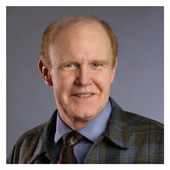Balancing Bitter and Sweet Tastes
 Mary is in a physically and emotionally abusive relationship for the last 10 years A good mother and a loving daughter but there is something wrong here
Mary is in a physically and emotionally abusive relationship for the last 10 years A good mother and a loving daughter but there is something wrong here
And yet when you talk with her there is a genuine need to give and give yet a fear of not deserving
From an energy science view this is an imbalance between the sweet and bitter tastes Tastes are complex energy patterns that have psychophysiologic (mindbody) consequences
There are two emotional energy fields here The fields of love(sweet) and fear(bitter) You know, fear is not bad and in appropriate circumstances fear is necessary for survival So it's an imbalance that Mary is exhibiting; too much love and not enough fear
Too much of the sweet taste leads to love without responsibility An open heart without boundaries And diabetes energetically implies lack of sweetness in life So the lack of sweetness is substituted with something else(in this case abuse that Mary grew up finding was what love looked like to her)
The heart is balanced between the sweet and bitter energy patterns
And of course too much bitter is unhealthy as well In excess it can cause us to become cynical, boring, isolated, and lonely
Therefore adding more bitter in the diet is great for a society so steeped in the sweet taste Juicing with greens is an excellent way to bring balance to the body
This balance in nutrition helps us open our hearts and have less fear People with open hearts look for the finer things, silk versus burlap
Currently we don't have such concepts in our matter science nutritional model but I think we are in desperate need of embracing our psychological in the foods and tastes that we consume
Once you work with the heart you cannot put things in your mouth that are bad for your system When the heart opens those “old friends” can no longer be eaten because they induce imbalance
Have you noticed that if you have a lot of sweet taste that balancing it with another taste can make you feel better? Do you feel bad when you've had an excess of the sweet taste? What kind of sensations are generated?
Until tomorrow To health as a Skill Love DrBill
Read More
Nutrition Is More About Habits Than Foods
Dr Dina Rose argues at her blog, itsnotaboutnutrition.com, that our nutritional problems lie in our eating behaviors that are actually lifestyle patterns beginning in childhood
And I would say that it's a bit of both I believe she is spot on about lifestyle nutritional behavior patterns being 80% of our nutritional problem But the remaining percentage belongs to the incompatabilities, nonharmonious food choices, and poor digestive fire issues we have talked about in the past
She believes that if we're going to get any progress in our health problem, it starts with our children first, and us second After all, they are carrying either good choices or our poor choices, going forward
Some of her thoughts from her blog bear repeating:
1) Instead of worrying about introducing new foods, establish a style of eating that includes the following:
- Don’t eat the same foods two days in a row or twice in a day. This will get your kids used to the idea that you eat different foods and that idea will lay the foundation for introducing new foods.
- Make sure your kids eat more fresh, natural foods than anything that comes out of a box or a can.
Both of these can be achieved (and should be achieved) without introducing new foods. Simply cycle through, and reapportion, foods your kids already eat.
2) Take the pressure off your kids by serving small portions, by never asking your kids to eat more and by never linking eating “well” to getting dessert.
3) Look at why your kids eat the way they do (are they afraid new foods will taste bad, do they have a cautious personality, are they in a control struggle with you) and parent that aspect of your child.
Anything more to add? Do you think that childhood eating behaviors are a result of parents and society? Do you think obesity begins in childhood?
Until tomorrow To health as a Skill Love DrBill
Read More
Sabotaging Appetite: Three Ways to Avoid
Whoa, how many ways are there to kill an appetite? Of course the mind is the saw in our cartoon and our friend the appetite is losing her flooring
Contrary towhat many matter science nutritional experts say, appetite is our very very best friend
But it gets maligned because it's believed that it's responsible for all the bad things that happen to us In reality it's the foods, incompatabilities, and poor digestion, not our appetite, that lay at the heart of our nutritional problems
So appetite is our window to the health of our digestive fire We have blogged many times before about this concept but it's the key to optimal health
Appetite that is neither too strong(can't wait to eat, so hungry I'll eat cardboard) nor too distracted(two or three bites and I'm done) or too weak or slow(symptoms after eating indicating poor ability to digest what was just sent down)
So how do we sabotage our appetite
At times we can be so busy that we can ignore the appetite and literally not think we are hungry, even though it's 12noon and our mindbody's ready for the experience of food The solution? Begin eating at the regular time and you'll find the appetite is rarin' to go
Ignoring the appetite by continuing to push through the project at hand even though the mindbody is pleading for nourishment This is akin to avoiding a natural urge to have a bowel movement or urinate because one is too busy Never ignore the mindbody's natural urges
When eating stay focused on what is at hand rather than distracted with conversation, reading, or whatever, helps steady the appetite and prevents lack of adequate nourishment
Sabotaging a natural urge such as our appetite is a key ingredient to illness It's valuable to take a look
Have you ever noticed that you were a saboteur? Have you found if you sabotaged lunch that you overate at the evening meal? Did you find that missing the noon meal interrupts the natural energy flow of the day?
Until tomorrow To health as a Skill Love DrBill
Read More
Nutritional Stashes: Five Ways To Manage
Great for food on the run, these food stashes Located at the desk at the office, or in the car, or around the house, or even vending machines We'll never run out. right! Simple eating behavior patterns
My friend who loves tastes, smells, cooking, and shopping for foods gave me an insight into the unique world of the food stash fetish And all of the above were favorites except for the vending machine, because she used healthy stashes
Now our pockets of foods placed in strategic locations is neither good nor bad but raises an observation worth reflecting on, me thinks
You see, energy science nutrition would advocate that the GI tract needs about six hours between eating so that the digestive process can complete its task as the transit time of a bolus of food is normally 6 big ones
So when the GI tract sees another bolus coming at it, the natural response would be, "Hey, hold on there, I'm not done down here! What do you want me to do? Digest this sandwich or take on the trail mix you just sent down here?"
What happens is a discontinuity of the digestive process, a disharmony in the natural flow of the day in the life of the GI tract And over time will progressively lead to imbalance in the physiology
OK, OK you're going to snack As I said earlier, it's not about right or wrong, just understanding the reasons why not to do it
So let's address what are you snacking on? I think that's a more important question
Nacho cheese chips, carbonated sugar water, candy bars or whatever that's easily accessible We're all busy and maybe the vending machine is our out
What can we do:
Healthy snacks on the grocery list
Healthy snacks according to your nutritional format
Staying away from vending machines
Trying to focus on parking the main meal of the day at noon when possible
Attempt to reduce the amount of stashes and snacking done (remember baby steps)
Are you a stasher? How many? Have you ever made the observation that they affect the appetite?
Until tomorrow To health as a Skill Love DrBill
Read More
Fad Diets: 6 Ways To Know
We hear the term "fad diets" these days but what constitutes a diet as fad?
The origins of the word "fad" comes from different sources and some are interesting; a hobby or pet project, from the early 1800's; perhaps 18th century term, fiddle faddle, implying fashion or craze; from the French, fadaise meaning trifle or nonsense; unltimately from the Latin, fatuus meaning stupid
Whatever, we don't take a fad seriously A passing fancy as implied
But currently a fad is only a fad after we have experienced that there is no truth in its approach
I would purport that a nutritional fad is grounded on the following:
No test of time to establish validity
Based on a particular food(certain fruit, berry etc)
Based on a type of food(carbohydrate, protein)
Based on measurement(number of calories consumed, number of pounds lost)
Intuitively claims cannot be believed(in six weeks you'll lose 30 pounds!)
No nutritional system supports the overall process(employing scientific concepts)
This first and last guideline are the most salient because(and this seems like heresy) they place our current matter science nutritional model as suspect as fad
Why? Because there is no nutritional system that supports the underlying tenets of its dimension Therefore I would have to term our current system as fad and I believe that's why we fall for all the fad diets; we don't have a system of nutrition that isn't fad
How in the world could we know the difference between what is quality and real and fad when we have only been exposed to fad?
Until tomorrow To health as a Skill Love DrBill
Read More








